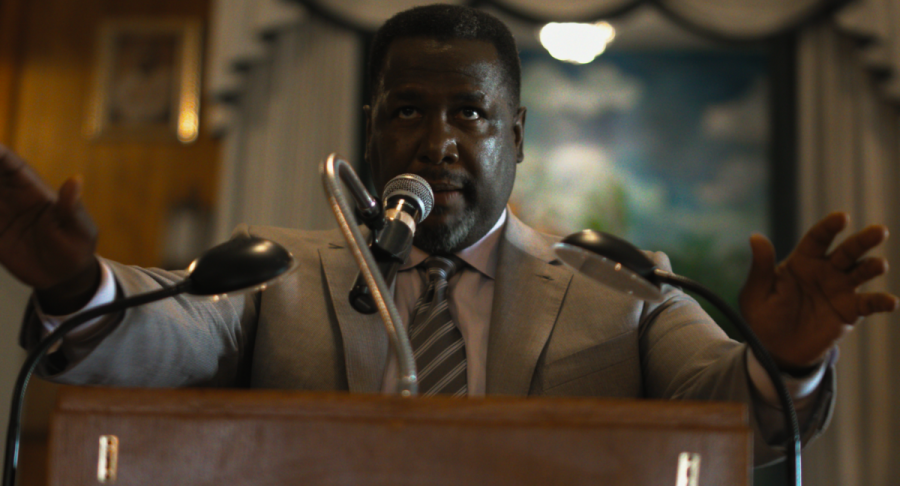Tisch sophomore Phillip Youmans’s debut directorial feature “Burning Cane” showcases a unique and original cinematic perspective from a surprisingly young source. Youmans wrote and directed the film while he was still in high school and initially premiered it at Tribeca Film Festival in April as a first-year NYU student. “Burning Cane” won the festival’s Founders Award for Best Narrative, Best Cinematography and Best Actor in the U.S. Narrative Competition.
Set in the deep South of rural Louisiana, “Burning Cane” follows Reverend Tillman (Wendell Pierce), a preacher and alcoholic reconciling with his faith and with himself, and the Wayne family, as mother Helen (Karen Kaia Livers), a devout Christian, copes with her son Daniel’s (Dominique McClellan) alcoholism and its effect on his young son Jeremiah (Braelyn Kelly).
The depth of Youmans’s artistic vision is evident from the first 10 minutes of the film, in which narration and cinematography meld to create a strong atmosphere. As the voiceover introduces the themes of the story in resolute poetic rhythm, the experience is akin to waking up from a dream. The camera here is treated not only as a documenter; it builds a world — however small or distant it may be — by capturing the very essence of locations with its purposeful shots, mostly full of hazy, warm natural light.
This established serenity is interrupted quickly and unexpectedly by a visual transition to a woman butchering a chicken. The violence is unmistakable, but its complex nature is underscored by the juxtaposition of an intimate close-up of the act with soft and gentle lighting.
The film has some emotionally taxing scenes, such as when Daniel, drunk and dazed, passes near-empty beer cans and bottles of liquor to his young son. The scene induces a spiral of questions: is the true source of sadness in the scene the depressing relationship between father and son or its air of normalcy? Should we celebrate Daniel’s bonding moment with his son or condemn his irresponsibility? An excerpt from one of Tillman’s featured sermons comes to mind: “Have you taken time to build the relationships? Love is the most important thing in this life.”
These undercurrents of destruction are not presented with blatant instructions of when to wince or look away; rather, the sense of tragedy is woven into the fabric of the film in a way that allows each viewer to decide how they feel about the narrative. Each scene affects you as much as you let it; each emotion washes over you only if you want it to.
The stunning visual expression of the film is undercut only by its pacing. Despite the film’s relatively short runtime, clocking in at 77 minutes, the slowness of the plot makes the film feel drawn out. While the cinematography is fascinating to follow, featuring an intriguing perspective built on canted angles, the camera lingers too long on certain moments and develops a passive nature that slowly diminishes the intensity of some scenes. The connections between the two narratives are confusing to understand as the film arbitrarily drifts back and forth between them; it’s difficult to accurately perceive the plot without the help of any exposition.
“Burning Cane” opens in select New York City theaters today and premieres on Netflix on Nov. 6.
Email Alexandra Bentzien at [email protected].


























































































































































